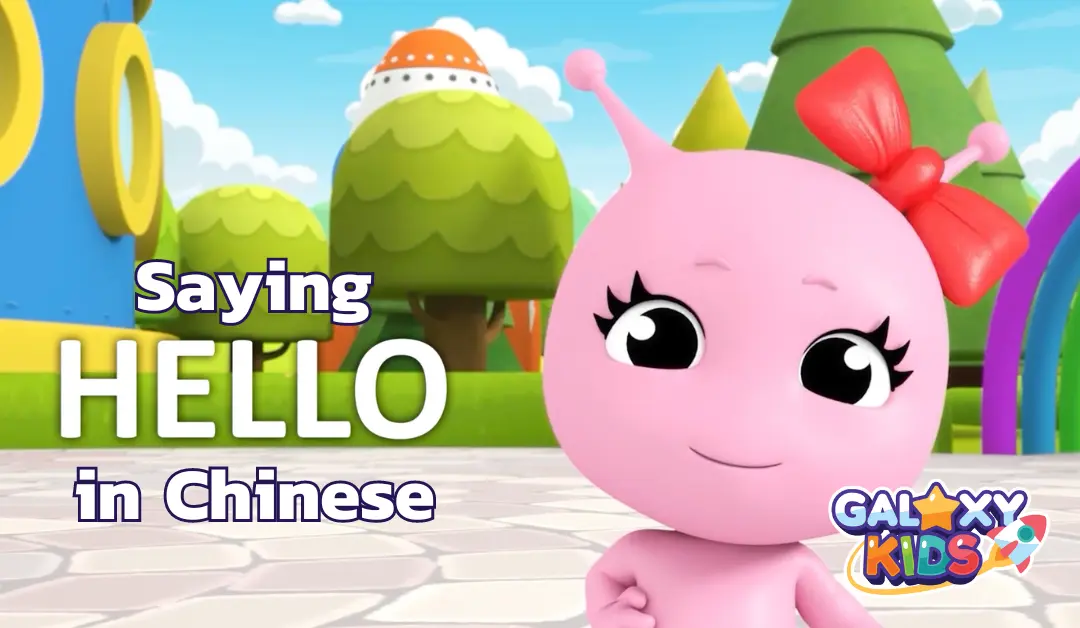
So you’ve decided that you want your child to start learning Chinese. That’s great! Learning Chinese will open many doors to wonderful opportunities for your child. Here are some tips of things to do and things to avoid when helping your child learn Chinese. You don’t need to be fluent in Chinese and you don’t need to be a teacher to help your child learn a new language.
DOS
1) Introduce Chinese in a casual way.
Before enrolling your child in a Chinese class, it is best to get your child used to hearing Chinese first, so that they are more familiar with how it sounds, even if they don’t understand it yet.
You can introduce Chinese in a casual way by listening to fun Chinese songs throughout the day and adding it to your playlist along with English songs. There are Chinese versions of popular kids songs and lots of fun, kid-friendly songs in Chinese that you and your child will have a blast singing and dancing to.
Galaxy Kids Chinese has some fun and easy Chinese songs for kids which you can watch on our YouTube channel!
If you or a family member or friend speaks Chinese, encourage them to speak to your child in Chinese. They might not understand at first, but with enough repetition and encouragement, you’ll be surprised how much your child will end up understanding!
2) Make learning Chinese fun.
Studies show that children learn best when they’re having fun. They feel more relaxed and confident when they are happy and playing. Learning Chinese can be a fun game for your child instead of something serious.
A great way to make learning Chinese fun for your child is by introducing them to a fun Chinese learning app like Galaxy Kids Chinese! Galaxy Kids Chinese has thousands of songs, games, and animations to help your child learn Chinese while having fun.
Another way to make learning Chinese fun is to watch videos to introduce simple vocabulary words in Chinese and then practice with your child throughout the day.
Children love to count, so you and your child can watch a simple counting video in Chinese to learn the vocabulary and then practice by singing the new numbers and doing fun counting activities such as helping your child count toys in Chinese or cooking something easy with your child where they count out the ingredients in Chinese.
Children love to learn using all of their senses, so getting your child active and playing while learning is the best way for them to remember new words in Chinese and associate it with fun and special bonding time with you.
3) Give your child positive encouragement.
Confidence is key when learning a new language. The best way to encourage your child to learn Chinese is to praise them when they do a good job and give them extra encouragement if they are struggling with something.
Your child loves when you praise them and tell them that what they are doing is amazing, so make sure to celebrate both little milestones like being able to repeat a word in Chinese, as well as bigger milestones like being able to say all the colors in Chinese by themselves!
For younger children, it is important to be extra excited and happy when your child is trying to learn Chinese, so that they know that they are doing great and feel more confident to keep trying. Eventually, they will become fluent and will love to show off all that they know!
DON’TS
1) Don’t stress out or stress your child out.
Children need to feel relaxed and calm in order to learn and enjoy learning. If you are stressing out too much about your child learning Chinese, it will cause your child to feel stressed as well. Stress lowers confidence and will make it more difficult for your child to remember new vocabulary words and even speak. They will also begin to associate learning Chinese with stress instead of fun, which will make them not want to practice.
Remember that children learn at their own pace and also learn languages much faster than adults. Some children might not speak a word of Chinese after listening for a while, but then will suddenly start speaking out of nowhere and showing you that they’ve been paying attention the whole time!
So just relax and enjoy your child’s learning journey. Encourage your child and don’t pressure your child. They will learn at their own pace and speak when they are ready.
2) Don’t force your child to learn Chinese.
Since learning Chinese should be fun for your child, the moment your child starts to get antsy and not enjoy the activity, listen to your child and end the activity. You can try a different activity and see if they enjoy that one more.
Let’s say you want your child to learn colors in Chinese and you are having them sort colored blocks, but you child doesn’t want to do that activity. You can switch to painting or play-dough and then casually say the colors in Chinese as you play with your child. Eventually, your child will repeat the words as they’re playing. But if you force your child to repeat before they’re ready, they will get frustrated and not want to do the activity.
But what if your child doesn’t want to play with blocks or paint or play with play-dough? Then that means your child needs a break and should be allowed to choose what they want to do next. Maybe they need a nap or a snack to get their energy back. Whatever you do, do not force your child to learn Chinese. If your child is not in the mood to learn at that moment, do something else, make sure your child is relaxed and rested, and try again.
3) Don’t burn your child out.
Some parents think that children will learn a new language faster if they take more classes and study more, but the opposite is true. Younger children burn out easily and need more play time and rest time than older children.
Younger children also tend to have a very short attention span and don’t like too many repetitive activities unless it’s something they really love and have chosen to do themselves.
Learning Chinese doesn’t need to be serious or stressful. You can incorporate Chinese language learning to any activity your child enjoys: cooking, playing with toys, going to the park, watching videos, listening to music, making art, and even eating!
I hope these tips help you think of what to do and what to avoid when teaching your child to speak Chinese. Remember to keep learning Chinese casual, relaxed, and fun for you and your child!







